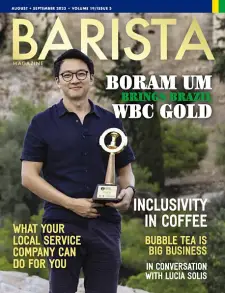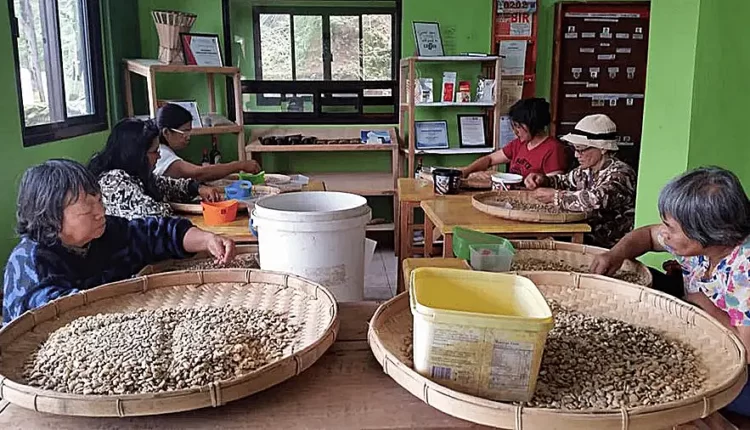Reclaiming Philippine Coffee with Boondocks Roasters: Part Two
We continue our discussion on Philippine specialty coffee with Boondocks Roasters’ Emil Vanta.
BY EMILY JOY MENESES
BARISTA MAGAZINE ONLINE
Feature photo courtesy of Boondocks Roasters
Yesterday, we began our two-part discussion with Boondocks Roasters’ Emil Vanta about the Philippines, its history of coffee production, and the direction the specialty-coffee world is moving for the Southeast Asian country. In part one, we discussed how coffee arrived in the Philippines via colonization and how that affected Philippine coffee producers, as well as how Emil, through Boondocks, is trying to put power back in the hands of Filipino farmers.
In part two, we’ll explore the different regions in the Philippines where coffee is being produced, and how Filipinos in both the homeland and diaspora are staying connected to one another through coffee.

The Beauty of Kapeng Barako
Based in Los Angeles, Boondocks Roasters specializes in single-origin coffee from the Philippines. One of the varieties they offer is kapeng barako, aka barako coffee. This variety gets its name from the Tagalog word barako which means “wild boar”—an allusion to its bold and robust flavor profile.
Grown primarily in the provinces of Batangas and Cavite, kapeng barako is known for its boldness and full body, along with its earthy and nutty undertones. Boondocks also describes their kapeng barako as having a “subtle jackfruit sweetness” and hints of nutmeg, peanuts, and dark chocolate, along with a creamy mouthfeel.

In addition to kapeng barako, Boondocks sources coffee from Davao and the Cordillera mountains, with a focus on sourcing coffee from co-ops run by women and indigenous communities.
Staying Connected to the Homeland
Boondocks’ co-founder Emil Vanta describes why, as Filipinos living in the diaspora, it’s important to stay connected to the homeland and continue working with people currently residing in the Philippines.
“As a Filipino-American, I believe it’s crucial for our generation to collaborate with individuals in our home country for several reasons,” he shares. “It strengthens our connection to our roots, allowing us to preserve and celebrate our heritage—and it promotes cultural exchange, fostering mutual understanding and growth. By actively engaging with individuals in our home country, we nurture our cultural heritage, contribute to progress, and demonstrate our sense of responsibility while creating a global community that celebrates our shared Filipino identity.”

Emil remains hopeful for not only the future of Boondocks, but the future of Philippine specialty coffee as a whole.
“My journey in the coffee world has been challenging at times but rewarding,” he states. “I’ve met so many wonderful people from many walks of life that have encouraged and inspired me throughout this process. I’m very grateful for every moment that has led me here.”
ABOUT THE AUTHOR
Emily Joy Meneses (she/they) is a writer and musician based in Los Angeles. Her hobbies include foraging, cortados, vintage synths, and connecting with her Filipino roots through music, art, food, and beverage.

READ THE LATEST BARISTA MAGAZINE
Out now: The August + September 2023 issue of Barista Magazine featuring Boram Um of Brazil on the cover. Read it for free with our digital edition. Get your Barista Magazine delivered; start a subscription today! Visit our online store to renew your subscription or order back issues.
Source: Barista Magazine



